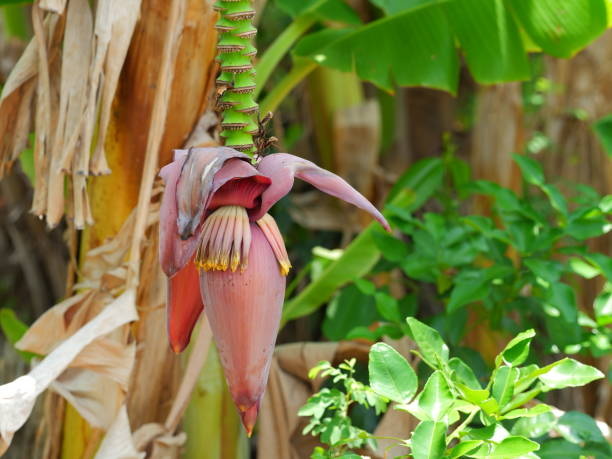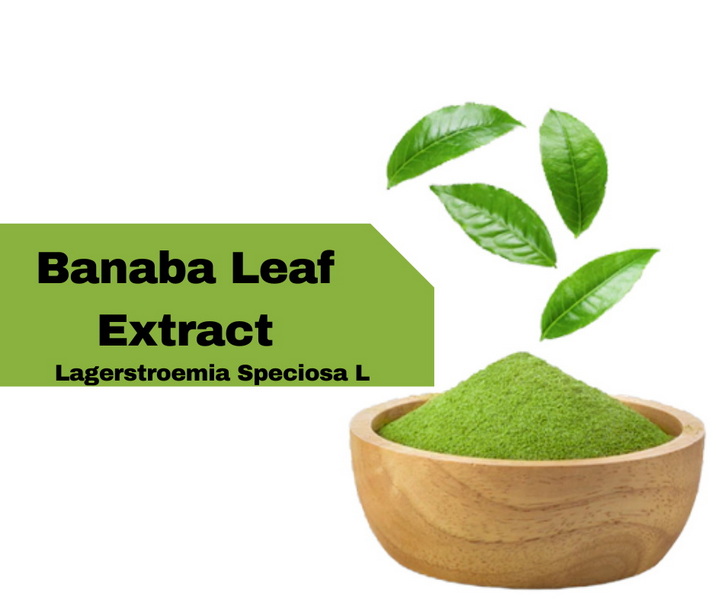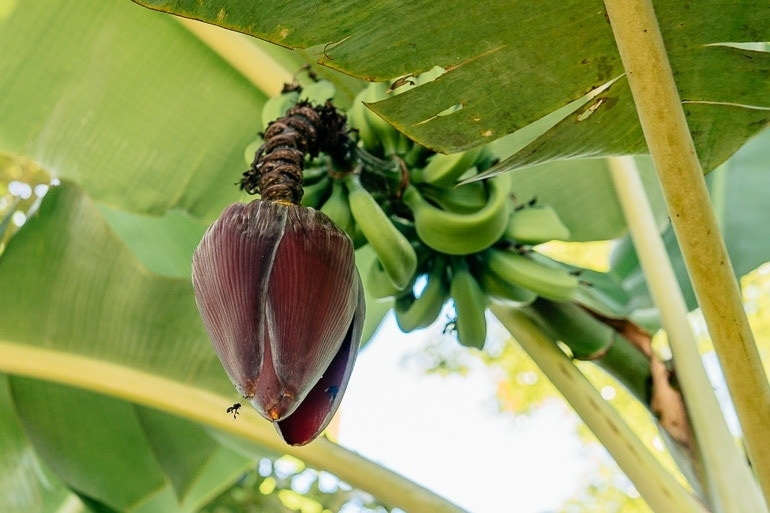Content Menu
● Introduction to Banaba Leaf Extract
>> Mechanism of Action
>> Scientific Evidence
>> Benefits Beyond Blood Sugar Control
● Potential Side Effects and Interactions
>> Precautions for Use
● Comparison with Other Natural Remedies
>> Berberine vs. Banaba Leaf Extract
>> Chromium vs. Banaba Leaf Extract
● Lifestyle Modifications for Enhanced Efficacy
● Integrating Banaba Leaf Extract into Daily Life
>> Case Study: Successful Use of Banaba Leaf Extract
● Future Research Directions
● Conclusion
● Frequently Asked Questions
>> 1. What is the primary active compound in banaba leaf extract responsible for its glucose-lowering effects?
>> 2. Can banaba leaf extract be used alongside conventional diabetes medications?
>> 3. What are the typical dosages of banaba leaf extract for blood sugar control?
>> 4. Does banaba leaf extract have any antioxidant properties?
>> 5. Are there any known side effects of using banaba leaf extract?
● Citations:
Banaba leaf extract, derived from the plant Lagerstroemia speciosa, has been gaining attention for its potential in managing blood sugar levels. Traditionally used in Southeast Asia, particularly in the Philippines, this natural remedy is now being studied globally for its efficacy in controlling blood glucose. In this article, we will delve into the benefits, mechanisms, and scientific evidence supporting the use of banaba leaf extract for blood sugar control.

Introduction to Banaba Leaf Extract
Banaba leaf extract is rich in corosolic acid, a triterpenoid compound known for its glucose-lowering properties. The extract has been used for centuries in traditional medicine to treat diabetes and other metabolic disorders. Its popularity stems from its ability to enhance glucose uptake in cells, thereby reducing blood sugar levels without causing significant side effects.
Mechanism of Action
The primary mechanism by which banaba leaf extract controls blood sugar involves the activation of glucose transporter 4 (GLUT4), which promotes the uptake of glucose into cells. This action is crucial for lowering blood glucose concentrations and improving insulin sensitivity.
Scientific Evidence
Numerous studies have demonstrated the efficacy of banaba leaf extract in reducing blood sugar levels. A study published in the Journal of Ethnopharmacology showed significant reductions in blood glucose levels in patients with type 2 diabetes when administered orally. Another study involving diabetic rabbits found that banaba leaf extract at doses of 400 mg/kg and 800 mg/kg significantly lowered fasting blood glucose levels, with effects comparable to the standard antidiabetic drug metformin.
Benefits Beyond Blood Sugar Control
Banaba leaf extract offers additional health benefits, including:
- Antioxidant Properties: Corosolic acid exhibits antioxidant activities, which can help protect against oxidative stress and inflammation.
- Weight Management: Some studies suggest that banaba leaf extract may aid in weight loss by enhancing fat metabolism and reducing body fat.
- Cardiovascular Health: The extract's ability to regulate lipid metabolism may contribute to improved cardiovascular health.
Potential Side Effects and Interactions
While banaba leaf extract is generally considered safe, it may interact with certain medications, such as blood thinners and diabetes medications. It is crucial to consult with a healthcare provider before using it, especially if you are already on medication.
Precautions for Use
1. Dosage: Typical dosages range from 32 mg to 48 mg per day for blood sugar control.
2. Combination with Other Supplements: Avoid combining with other glucose-lowering supplements without medical supervision.
3. Pregnancy and Breastfeeding: There is limited research on its safety during pregnancy and breastfeeding; thus, caution is advised.

Comparison with Other Natural Remedies
Banaba leaf extract is often compared to other natural remedies for blood sugar control, such as berberine and chromium. While each has its own merits, banaba leaf extract is noted for its rapid onset of action and potential to enhance insulin sensitivity.
Berberine vs. Banaba Leaf Extract
Berberine is another popular natural compound used for blood sugar management. It works by activating AMP-activated protein kinase (AMPK), which improves insulin sensitivity and glucose uptake. However, berberine may have gastrointestinal side effects, whereas banaba leaf extract is generally well-tolerated.
Comparison Table:
| Compound | Mechanism | Side Effects |
| Banaba Leaf Extract | Activates GLUT4 | Generally well-tolerated |
| Berberine | Activates AMPK | May cause gastrointestinal issues |
Chromium vs. Banaba Leaf Extract
Chromium is a mineral that enhances insulin sensitivity and glucose metabolism. While it is effective, chromium may not act as quickly as banaba leaf extract in lowering blood glucose levels.
Lifestyle Modifications for Enhanced Efficacy
To maximize the benefits of banaba leaf extract, it is essential to incorporate lifestyle modifications that support blood sugar control. These include:
- Dietary Changes: Focus on a balanced diet rich in whole foods, fruits, vegetables, and whole grains.
- Physical Activity: Regular exercise can improve insulin sensitivity and glucose uptake.
- Stress Management: Techniques like meditation and yoga can help manage stress, which is linked to blood sugar fluctuations.
Integrating Banaba Leaf Extract into Daily Life
For those considering adding banaba leaf extract to their regimen, here are some practical tips:
- Start with a Low Dose: Begin with a lower dose and gradually increase as needed and under medical supervision.
- Monitor Blood Sugar Levels: Regularly check your blood glucose levels to assess the effectiveness of the extract.
- Combine with a Balanced Diet: Ensure you are following a healthy diet to enhance the extract's efficacy.
Case Study: Successful Use of Banaba Leaf Extract
A case study involving a 45-year-old woman with type 2 diabetes showed significant improvements in her blood sugar levels after incorporating banaba leaf extract into her daily routine. She experienced a reduction in fasting blood glucose from 180 mg/dL to 120 mg/dL over a period of six weeks.
Future Research Directions
While current evidence supports the use of banaba leaf extract for blood sugar control, further research is needed to fully understand its long-term effects and potential interactions with other medications. Studies focusing on its impact on cardiovascular health and weight management could provide additional insights into its benefits.
Conclusion
Banaba leaf extract presents a promising natural remedy for blood sugar control, backed by scientific evidence of its efficacy in reducing blood glucose levels. Its mechanism of action, primarily through corosolic acid, enhances glucose uptake and improves insulin sensitivity. While it offers several health benefits, it is essential to use it responsibly and under medical guidance.

Frequently Asked Questions
1. What is the primary active compound in banaba leaf extract responsible for its glucose-lowering effects?
The primary active compound is corosolic acid, a triterpenoid that enhances glucose uptake into cells.
2. Can banaba leaf extract be used alongside conventional diabetes medications?
It is advisable to consult with a healthcare provider before combining banaba leaf extract with conventional diabetes medications to avoid potential interactions.
3. What are the typical dosages of banaba leaf extract for blood sugar control?
Typical dosages for blood sugar control range from 32 mg to 48 mg per day.
4. Does banaba leaf extract have any antioxidant properties?
Yes, corosolic acid in banaba leaf extract exhibits antioxidant activities, which can help protect against oxidative stress.
5. Are there any known side effects of using banaba leaf extract?
Generally, banaba leaf extract is well-tolerated, but it may interact with certain medications. Mild side effects can occur, and it is essential to monitor blood sugar levels closely.
Citations:
[1] https://esther-mall.com/blogs/news/effects-of-coleus-banaba-leaf-extract-from-blood-sugar-to-weight-control-3-benefits-of-banaba-leaf
[2] https://citeseerx.ist.psu.edu/document?repid=rep1&type=pdf&doi=6d9608112538499efdfda645b6b0859e510f23a5
[3] https://research.lpubatangas.edu.ph/wp-content/uploads/2019/06/Steth-2014-001.pdf
[4] https://patents.google.com/patent/JPH05310587A/en
[5] https://pmc.ncbi.nlm.nih.gov/articles/PMC3468018/
[6] https://pubmed.ncbi.nlm.nih.gov/22095937/
[7] https://www.pchrd.dost.gov.ph/heartnovation/banaba-tablets-standardized-herbal-supplement-with-blood-sugar-lowering-health-benefits/
[8] https://pmc.ncbi.nlm.nih.gov/articles/PMC3092648/






























